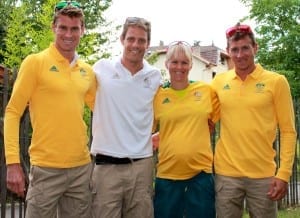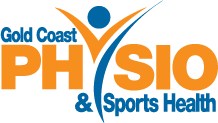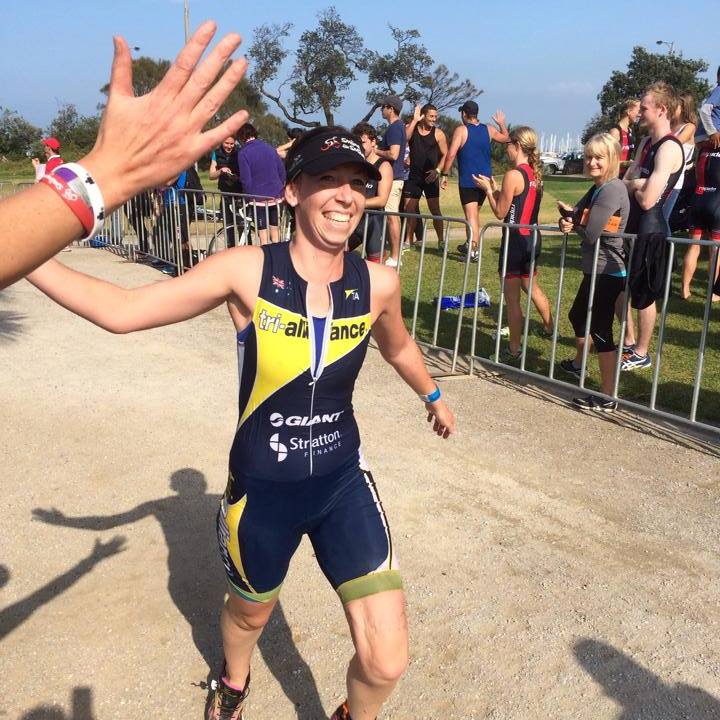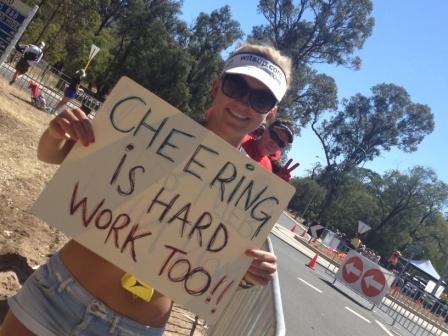By Britt Caling (Physiotherapist)
With the start of the triathlon season underway but with the bulk of the season still to come, it’s probably an appropriate time to review that stats about common triathlon injuries in triathletes.
Did you know:
- 50- 75% of competitive triathletes will experience at least 1 injury in a 1 year period
- The incidence of injury during competition phase is greater than during training phase. The average triathlete will experience between 2 and 5 injuries per 1000 hours trained during base phase. During competition period this injury rate increases to between 5 and 17 injuries per 1000 hours trained.
- There is a “U-shaped” association of injury to time spent training each week. That is, if you train too little or too much you are likely to be at greater risk of injury. The challenge for every triathlete and coach is to determine “what is the optimal amount of training each week for each individual”. What may be appropriate for one athlete may be too little or too much for another.
- The majority of triathlon injuries are overuse injuries. An overuse injury is one that results from repetitive activities and excess use of a body part where cumulative tissue micro-trauma occurs. An overuse injury may be acute (of recent onset) or chronic (present for a long duration).
- The longer the triathlete has been in the sport and the greater the number of hours trained per week the more likely they are to suffer an overuse injury.
- Most injuries are related to the running discipline, with a higher number of running kilometers during pre-competition phase increasing the likelihood of injury during competition.
- Although the number of male competitors is greater still than female competitors, there is no difference in injury prevalence rates or most common site of injury between males and females
- The most common regions of injury in triathletes are the knee, low back and then shoulder. Olympic distance athletes tend to experience more knee-related injuries, while Ironman triathletes have a greater incidence of low back injury/pain.
The most common triathlon injuries I see in triathletes in our Gold Coast Physio & Sports Health clinic are:
- Running-related injuries: Achilles pathology; Shin pain and Tibial (shank) stress fracture; Plantar (bottom of foot) Heel Pain; Iliotibial band (ITB) friction syndrome
- Cycle-related injuries: Low back pain; Patello-femoral (knee-cap to thigh joint) knee pain
- Swim-related injuries: Shoulder pain related to tightness or instability/weakness
Did you know Physio’s do maintenance treatments, meaning you don’t necessarily need to be injured to see a Physio? To minimize injuries risk, and maintain your body to handle training and racing demands, body maintenance should be a part of every triathletes schedule. How much training you do will depend on the frequency of treatment.
- As a guide most of our AUS elites will have Physio/Massage 2-3 times per week all year round.
- To work out your requirements based on your training and competition it’s best to consult your Physio and arrange an ongoing plan.
- Gold Coast Physio & Sports Health can help you with all your questions. Whatever your goals, we’ll keep you on track!
Author: Britt Caling (APA Titled Sports Physio)
Physio to Triathlon Australia Elite Team & AIS Triathlon Program
B.App.Sc (physio) {Hons}
, Masters Sports Physio
Gold Coast Physio & Sports Health
M 0416 005 269 Ph 07 5500 6470
RUNAWAY BAY: 4/ 465 Oxley Dr Qld 4216
BURLEIGH: 9/79 West Burleigh Rd Qld 4220
![]()
![]()
Get to know Britt Caling
Britt Caling is an Australian Physiotherapy Association Sports Physiotherapist and Director of Gold Coast Physio & Sports Health. Britt has a special interest in endurance athletes, biomechanical analysis of swimming, cycling and running, improving sports performance and rehabilitation.

Currently Britt provides physiotherapy services to Triathlon Australia’s Elite Program and has worked extensively with The Australian Institute of Sport Triathlon and Kayaking programs, Swimming Australia, The Queensland Academy of Sport, The New South Wales Institute of Sport and has managed Sally Pearson since 2006.
Britt had a very successful 2012 London Olympics where she was in-camp as Sports Physio pre-Olympics with the Gold-medal Winning Mens K4 Sprint Kayaking Team, Gold-medallist Sprint Hurdle Sally Pearson and then was Sport Physio to the Triathlon Australia Elite Team where Erin Densham won a Bronze Medal.
Britt is a contributing author of the Human Kinetics text, “The Woman Triathlete” and currently contributes to Womens Running and Coast Multisport Magazines. Britt’s professional interest in sport is demonstrated by her own sporting achievements and participation. She has represented Australia for Hockey and has competed in multiple age group Triathlon World Championships. Britt currently competes in adventure racing and multisport events that vary in duration from several hours to multi-day events









